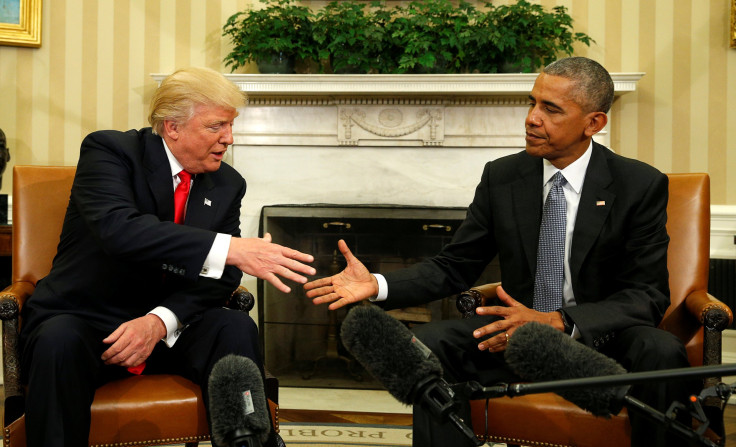Can Congress Reverse Electoral College Vote For Trump? 'Illegitimate' Electors Inspire Call For Objections

The Electoral College may have voted to name Donald Trump president weeks ago, but there are some protesters still fighting back.
Ahead of Congress' Friday session for counting electoral votes, the populist organization Americans Take Action has begun circulating a document asking lawmakers to object to Trump's victory. The activist organization argues that "just among Republican electors, there are at least 50 electoral votes that were not regularly given or not lawfully certified" because they lived outside of the districts they represented or held forbidden dual offices. Some Democratic votes are allegedly affected, as well.
"Trump's ascension to the presidency is completely illegitimate," Americans Take Action head Ryan Clayton told Alternet, a progressive activist news outlet.
Trump took home 304 electoral votes last month to beat Democrat Hillary Clinton, who nabbed 227. A candidate needs at least 270 to win.
Congress was scheduled to convene in a joint meeting at 1 p.m. EST Friday to formally count these results and — finally — declare a winner in the 2016 presidential election. Tradition dictates that the votes will be read aloud in alphabetical order, and politicians can object as the process goes along, according to the Constitution Center. The House and Senate may break to debate such objections, but ultimately both chambers have to agree for them to disqualify a vote. Then lawmakers would vote on a president from the three candidates with the most electoral votes: Trump, Clinton and Colin Powell.
As United For America wrote in a news release Thursday, this is unlikely, but it's what activists are banking on.
"We have a list of 50 illegal electors. That puts Donald Trump below the threshold that he needs to be elected president," Clayton said. "Let's debate it in an open session."
Aside from Americans Take Action's claims of illegitimate electors, at least three House Democrats have indicated they were weighing whether to object to Trump's votes Friday, Politico reported. They included Reps. Jamie Raskin, of Maryland, Bobby Scott, of Virginia, and Ed Perlmutter, of Colorado.
Amid reports that Russian hackers may have interfered in the election, Raskin told Politico he'd only get involved if he saw "evidence of technological tampering, ballot stuffing or the illegal purging of people from the rolls or exclusion of voters from the polls."
The House's history, art and archives website notes that people have only objected to Electoral College votes twice before: once in 1969, and once in 2005. Both times, Congress chose to count the votes like usual.
© Copyright IBTimes 2024. All rights reserved.






















